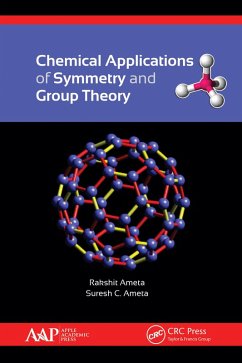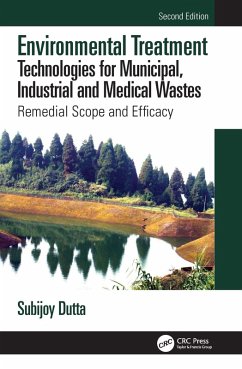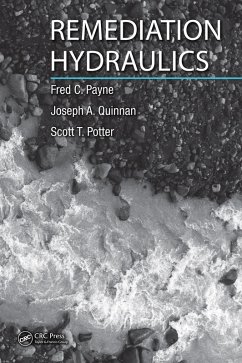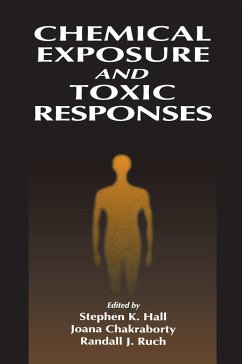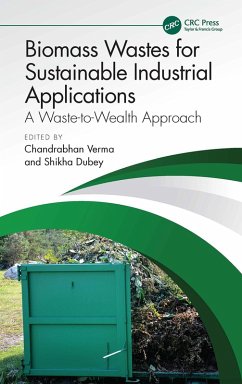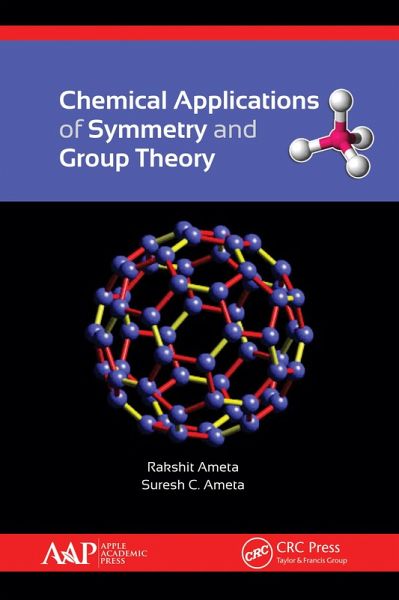
Chemical Applications of Symmetry and Group Theory (eBook, PDF)
Versandkostenfrei!
Sofort per Download lieferbar
97,95 €
inkl. MwSt.
Weitere Ausgaben:

PAYBACK Punkte
49 °P sammeln!
As the structure and behavior of molecules and crystals depend on their different symmetries, group theory becomes an essential tool in many important areas of chemistry. It is a quite powerful theoretical tool to predict many basic as well as some characteristic properties of molecules. Whereas quantum mechanics provide solutions of some chemical problems on the basis of complicated mathematics, group theory puts forward these solutions in a very simplified and fascinating manner.Group theory has been successfully applied to many chemical problems. Students and teachers of chemical sciences h...
As the structure and behavior of molecules and crystals depend on their different symmetries, group theory becomes an essential tool in many important areas of chemistry. It is a quite powerful theoretical tool to predict many basic as well as some characteristic properties of molecules. Whereas quantum mechanics provide solutions of some chemical problems on the basis of complicated mathematics, group theory puts forward these solutions in a very simplified and fascinating manner.
Group theory has been successfully applied to many chemical problems. Students and teachers of chemical sciences have an invisible fear from this subject due to the difficulty with the mathematical jugglery. An active sixth dimension is required to understand the concept as well as to apply it to solve the problems of chemistry. This book avoids mathematical complications and presents group theory so that it is accessible to students as well as faculty and researchers.
Chemical Applications of Symmetry and Group Theory discusses different applications to chemical problems with suitable examples. The book develops the concept of symmetry and group theory, representation of group, its applications to I.R. and Raman spectroscopy, U.V spectroscopy, bonding theories like molecular orbital theory, ligand field theory, hybridization, and more. Figures are included so that reader can visualize the symmetry, symmetry elements, and operations.
Group theory has been successfully applied to many chemical problems. Students and teachers of chemical sciences have an invisible fear from this subject due to the difficulty with the mathematical jugglery. An active sixth dimension is required to understand the concept as well as to apply it to solve the problems of chemistry. This book avoids mathematical complications and presents group theory so that it is accessible to students as well as faculty and researchers.
Chemical Applications of Symmetry and Group Theory discusses different applications to chemical problems with suitable examples. The book develops the concept of symmetry and group theory, representation of group, its applications to I.R. and Raman spectroscopy, U.V spectroscopy, bonding theories like molecular orbital theory, ligand field theory, hybridization, and more. Figures are included so that reader can visualize the symmetry, symmetry elements, and operations.
Dieser Download kann aus rechtlichen Gründen nur mit Rechnungsadresse in A, B, BG, CY, CZ, D, DK, EW, E, FIN, F, GR, HR, H, IRL, I, LT, L, LR, M, NL, PL, P, R, S, SLO, SK ausgeliefert werden.




